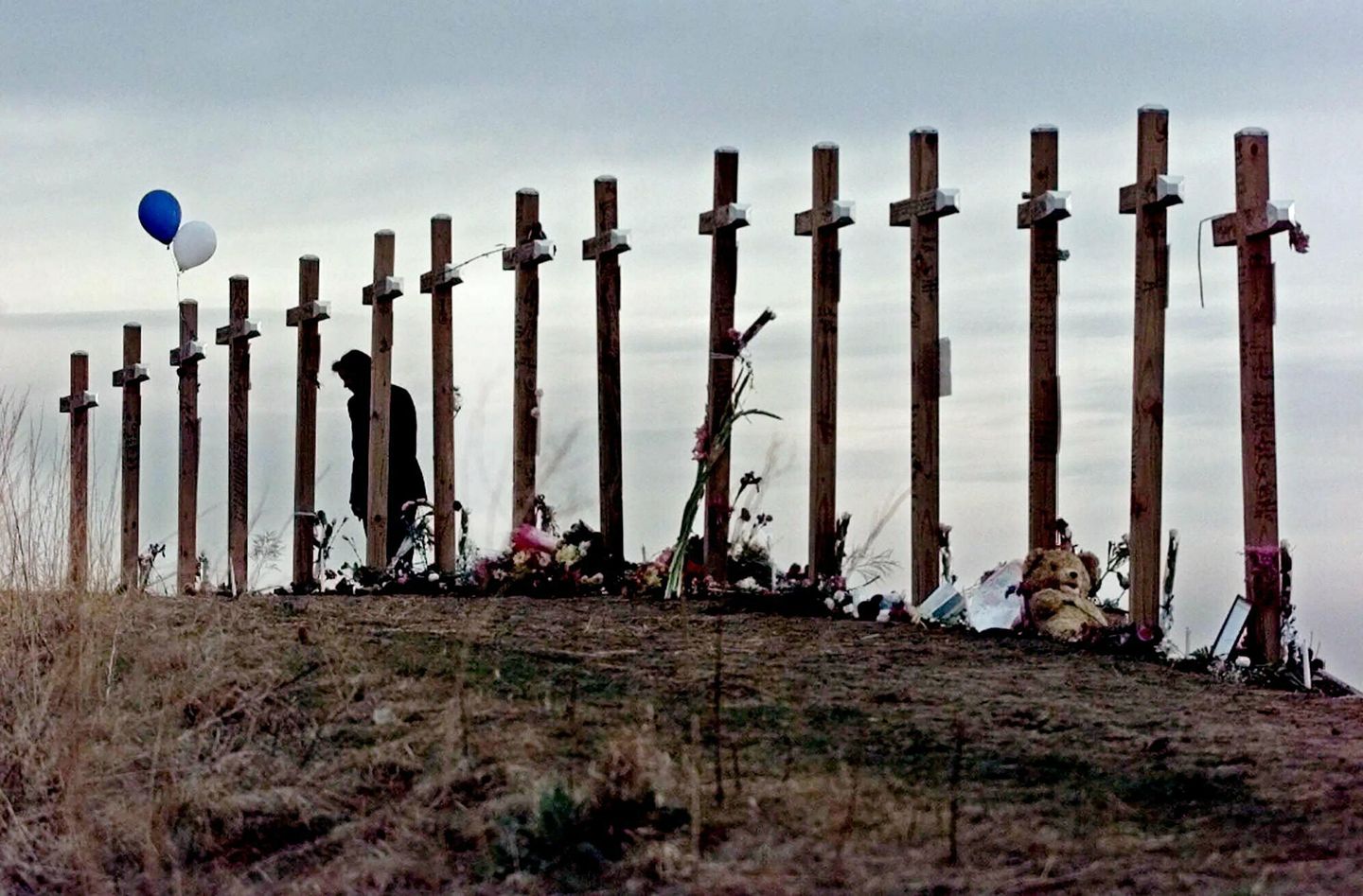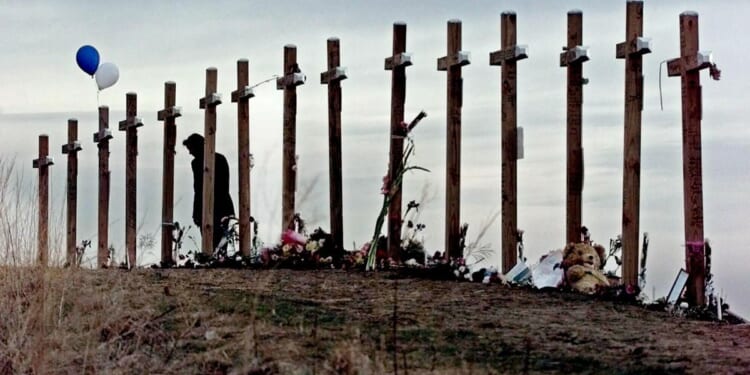
OPINION:
Evil. Carnage. Despair. The shooters at Columbine High School wanted to start a chain reaction of copycat school shootings when they perpetuated their April 20, 1999 assault.
Those two misguided young men who unleashed true evil on my school willfully murdered 12 peers and one teacher before turning their guns on themselves.
Subscribe to have The Washington Times’ Higher Ground delivered to your inbox every Sunday.
My sister, Rachel Joy Scott, was one of the slain, with her beautiful smile and compassionate heart taken from us all too soon. I survived what unfolded, but the experience remains singed into my memory.
As I’ve walked through the 9,312 days since the shooting, my journey has taken me through many mountains and valleys. Yet what was intended to inflict such harm, God has used for so much good.
I’ve spent the past 25 years learning how some of the biggest tragedies and harrowing experiences can bring about some of life’s greatest joys — that is, if we let them.
My family and I had to make a choice after Columbine: would we allow it to destroy us or would we pick up the pieces and use what we learned to help others? We’ve chosen the latter and the lessons learned along the way have been profound.
After every mass shooting in this country, I’m often asked to speak about how we can prevent these events from happening again. Is it about gun control, stricter laws, or addressing bad parenting? Or, is it all rooted in the mental health breakdown or the problem of pervasive bullying?
Everyone wants answers, and people seemingly become more desperate for solutions as each tragedy passes. But whenever I’m fielding questions about gun control, parental responsibility, bullying, or mental health, I find myself coming back to an undeniable reality: these are all symptoms of a much broader, deeper conundrum.
In the end, I believe it comes back to the content of our hearts and character. I believe it’s about what we feed our minds, the words we listen to — either spoken by others or the thoughts we have every single day. It’s about the voices and influences we digest. Or, more importantly, whom or in what we choose to believe.
See, words can bring life — or death. Whether it’s statements from parents, teachers, friends, or mentors, or what we choose to consume on film, television, video games, or social media. Every morsel of information, each thought or proclamation plants something deep in us; collectively, these sentiments create a worldview and a perspective on how we view others, the world around us, and ourselves.
The point is: the posture of our hearts is what matters most. Are we filled with love — or hatred, and which of these are we pouring into others? Furthermore, are we taking in positive content that fuels goodness or evil? Too often, we fail to focus on this most essential issue, letting other considerations get in the way.
Meanwhile, depression, hopelessness, and disconnection rage. The mental health crisis is heartbreaking and it can lead to suicide — one of the leading causes of death among teenagers.
Over the years, as I’ve traveled to schools and met families, I’ve heard many distressing stories. Too many young people today don’t feel they have a purpose; they experience hopelessness and adriftness.
While preventing mass shootings is important, confusion, negative worldviews, depression, and hopelessness are by far the bigger, more pervasive problems we must immediately address. There are so many damaging messages in media, Hollywood, and other venues today.
Sadly, we’ve attempted to build our culture on the sands of the self, yet we’re built for something far more fulfilling.
I believe everyone is born with a conscience that can help them know right from wrong. For me, it ties to my faith. It’s that still, small voice I try to listen to every day — it’s the idea that we should love and serve others, even our enemies.
It’s the reality, as I’ve learned in my own story, that we must forgive even those who haven’t asked for redemption or risk being entrapped in our own anger and fear.
Before her death, Rachel dreamed of starting a chain reaction of kindness and compassion. As I’ve sat and cried with students at assemblies after sharing Rachel’s story, I’ve seen the fruits of that dream become recognized.
But there’s so much work to still be done. Young people today need purpose, hope, a firm rooting from which to build their worldview.
My hope is we as a country — as a world — can start looking at this problem of depression among young people and to find ways to evaluate how to infuse the 70,000 thoughts that run through each of our minds each day with life-giving, fulfilling messages that lead us to serve and love one another more readily.
I want to leave you with a powerful message written by Rachel:
“I had my ups and downs and I fell a few times, but I did not give up.
Don’t give up because God’s reward is worth it all….
I challenge you to listen, and see what God will do.
Take a risk, chance it. Trust in God….
You will see what God can do with a willing heart.”
– Rachel Joy Scott
–
For the last 25 years, Craig Scott has travelled the world speaking and sharing both his story and Rachel’s story, with a message of kindness and resiliency. He has been on a mission to impact people in a positive way through the power of storytelling.












